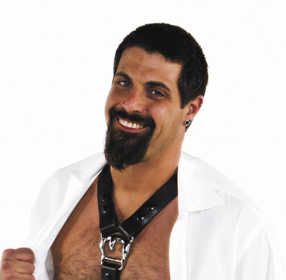HeinzeSight: Beyond the stereotypical addictions

Many of us have struggled with addictions: alcohol, drugs, tobacco, sex, eating, working out, or gambling. But there are social patterns, beliefs and attitudes – many common in our community that can also fall into this category. Potentially addictive actions should be monitored on whether they’re destroying parts of our life or causing pain for those around us. Additionally, they can make us seem tragic. Consider the role of the following three behaviors in our culture: bitchiness, self-loathing and overachieving. Argue with the concept all you want, but you could very well be addicted.
Addiction, by definition, is nothing more than continued use of something despite negative consequences in your life. These outcomes may include social difficulties like isolation, bitterness, or a lack of healthy relationships, but also physical problems like lack of good sleep, nightmares, higher blood pressure and tension. Sometimes addictions creep up and we don’t realize the problem until they’ve already caused us harm.
Have you ever tried to acknowledge when you are being generally bitchy, talking mad crap, and then trying to stop doing it for an extended period of time? What about working to challenge ideas that you are not good looking enough or too fat? Is it hard to accept success when it has only been marginal or you feel that you could have done better?
It can be difficult to try to stop the actions, but it’s even more difficult to stop the thoughts. Over time, the thought patterns become more engrained and changing them is even more difficult. Addictions are also characterized by having dependence on them – when they’re not present, we can feel something important is missing and begin to crave it intensely.
We can also build up a tolerance to what we’re addicted to – and may need to increase frequency or intensity to get the same effect. Many times our behaviors and thoughts intensify as well. Our self-deprecation and self-image gets worse or we become more bitchy and judgmental. We can also suffer from never being pleased with accomplishments, or feeling we will never be good enough.
Withdrawals from these behaviors may be less dramatic than withdrawing from heroin, but can be quite uncomfortable in different ways and may make us feel strange since we may have been doing these for a very long time. Old habits can definitely be hard to break.
Don’t get normal patterns confused with addictive ones: There are also healthy expressions of these thoughts and actions. Sometimes it is perfectly appropriate to call out some douchebag, be disappointed with oneself, or feel let down after a failure. It’s usually when your personality becomes partly defined by these patterns that you need to get concerned.
Do some introspection to list some of your most prominent qualities. If these include being grumpy, self-critical, negative, bitchy, arrogant, insecure, self-involved, traumatic or dramatic, you may be struggling with addictive patterns. Adopting new patterns and phasing the old ones out could be a positive in your life.
There are many ways to treat these addictions, but none of them can start without a firm dedication to want to stop. As with any goal, developing a plan to achieve it is paramount. Maintain your focus and keep working – sometimes things get firmly lodged in our minds, and removing them can be a long, painful, and frustrating process. But you can recover and re-gain your sobriety.
What's Your Reaction?
Columnist Brent Heinze is a licensed professional counselor in private practice who works with adults, adolescents, and families. He has worked with The Denver Element and S-CAP to provide grant funded programming for gay men in Denver and Colorado Springs. He currently lives in Palm Springs, CA. Reach him by email at clubtoxic@yahoo.com.










